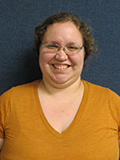2015 Application Topic 1: Cybersecurity
Our daily life, the work that we do, and the future of our nation depend on computers and computer security. Computers in our smart devices, laptops and desktops, and increasingly in equipment, rely on a vast array of networks to communicate. The growing use of social-networking sites like Facebook and YouTube, along with technical advances in data-retrieval techniques, is providing new opportunities to make use of people’s personal information. The world is more connected than ever before and we have more information at our finger tips than any previous generation, yet we are more vulnerable to theft, fraud, and abuse via data breaches, phishing, and software and hardware design flaws. News of cyber-attacks and intrusions have increased dramatically over the last decade. Increasingly we all learn of individuals and businesses having suffered the loss of sensitive information, such as personal financial and health data, and intellectual property, and of the U.S. government’s internet-based cyber-infrastructure having been undermined.
UC Berkeley has been a leader in integrating disciplines to develop cyber security science and technology that will radically transform the ability of organizations to design, build, and operate trustworthy information systems, and UC Berkeley has also been a leader in teaching techniques to manage data. In the summer of 2015, one professor and two instructors from Bay Area community colleges participated in in Data Security and Data Privacy research at UC Berkeley.
Click HERE to learn more about the topic.
2015 Application Topic 2: Energy
Energy is a very important driver of the economy in the US and around the world. As we migrate to energy source alternatives to fossil fuels, researchers have been addressing many technological challenges to make renewable technologies viable. Research in new energy technologies is extremely diverse, ranging from conceiving and validating new power generation concepts, identifying and engineering novel materials, improving efficiency, lowering costs, to integrating the new technologies into the power grid.
Researchers across UC Berkeley have been tackling energy challenges for decades and are continuing to do so. In the summer of 2015, one community college professor participated in the development of tools to learn about the impact of integrated new energy generation technologies into the power grid. A community collge instructor conducted nano-materials research that may be applicable in the field of energy.
Click HERE to learn more about the topic.
2015 RET Program Participants and Research Projects
Thermal Conduction in Semiconducting Oxide Alloys for Thermoelectrics
 Community College Faculty Researcher: Scott Beaver
Community College Faculty Researcher: Scott Beaver
Home Institutions: Merritt College, Oakland, CA & College of Marin, Kentfield, CA
Teaching: Chemistry
Hosting Organization: Materials Science and Engineering Department, UC Berkeley
Faculty Advisor: Professor Junqiao Wu
Mentor: Dr. Hwan Sung Choe
Abstract of Research: Exotic phase transition materials, such as vanadium oxide (VO2) thin films, may enhance the heat flow for nanodevices. Thermal conduction measurements were made for VO2 and WVO2 (18% tungsten) thin films grown on silicon wafers. The differential 3ω method was used to measure cross plane thermal conductivity in the temperature range -20 to 100 °C. Thermal conductivity ranged 0.9-1.9 W/mK. Phase transitions occurring for all films around 300-320 °K had small (~20%) changes in thermal conductivity.
Click HERE for the project poster.
Privacy Requires Work
 Community College Faculty Researcher: Miranda Braselton
Community College Faculty Researcher: Miranda Braselton
Home Institution: Chabot College, Hayward, CA
Teaching: Mathematics
Hosting Organization: International Computer Science Institute (ICSI), Berkeley
Mentor: Julia Bernd
Abstract of Research: The purpose of this project was to develop educational tools and activities in a module to help teachers demonstrate the principle: “Only you have an interest in maintaining your privacy”. This module is part of TROPE (Teachers’ Resources for Online Privacy Education) and the Teaching Privacy project. The project’s learning objective if to enable students to able to articulate why technology design, laws, and business policies do not inherently protect their privacy; students have the capacity to acquire new privacy-management skills as technology and policies change.
Click HERE for the project poster.
What’s in your DNA? Balancing Privacy and Utility When Releasing Genetic Data
 Community College Faculty Researcher: Carlos Rojo
Community College Faculty Researcher: Carlos Rojo
Home Institution: San Jose City College, San Jose, CA
Teaching: Anatomy and Physiology
Hosting Organization: Electrical Engineering and Computer Sciences Department, UC Berkeley
Faculty Advisor: Professor Ruzena Bajcsy
Mentor: Daniel Aranki
Abstract of Research: Genetic datasets are a rich information source that continue to guide biomedical research. However, genetic datasets are extremely sensitive, as they can be used to reveal information like ethnicity and disease risk. Here we explore the implementation of user-specified personalized privacy to balance the need to release genetic data with high utility (able to predict disease risk) with the desire to keep certain information private (such as ancestry).
Click HERE for the project poster.
Improving Student Understanding of the Grid via Simulating Constrained Dispatch
 Community College Faculty Researcher: Hitesh Soneji
Community College Faculty Researcher: Hitesh Soneji
Home Institution: City College of San Francisco, San Francisco, CA
Teaching:Engineering, Sustainability & Alternative Energy
Hosting Organization: Energy and Resources Group, UC Berkeley
Faculty Advisor: Professor Duncan Calloway
Mentor: Michael Cohen
Abstract of Research: Our goal is to develop insight into student learning of power systems through electricity grid game play by providing a more realistic scheduling framework. Scheduling is a key aspect of grid operations. Power plants can not be scheduled ad hoc. Power plant scheduling must adhere to a multitude of physical, economic, social, and ecological constraints. This project replaces the current proportional scheduling algorithm with a constrained power plant dispatch and optimization framework. A dispatch algorithm was researched, developed, and then implemented in the grid simulation game.
Click HERE for the project poster.
Isolation Forest for Anomaly Detection
 Community College Faculty Researcher: Carol Stanton
Community College Faculty Researcher: Carol Stanton
Home Institution: Contra Costa College, San Jose, CA
Teaching: Mathematics
Hosting Organization: Electrical Engineering and Computer Sciences Department, UC Berkeley
Faculty Advisor: Professor Dawn Song
Mentor: Dr. Gilad Katz
Abstract of Research Roject: Isolation Forest is a novel approach for anomaly detection proposed by Liu, et al. (2012). Using partitioning, binary search trees and data sampling, this method promises to be a fast and effective anomaly detector. We test the authors’ claims regarding the performance of Isolation Forest on a variety of data sets. We also compare the Isolation Forest algorithm to other standard classifiers.
Click HERE for the project poster.